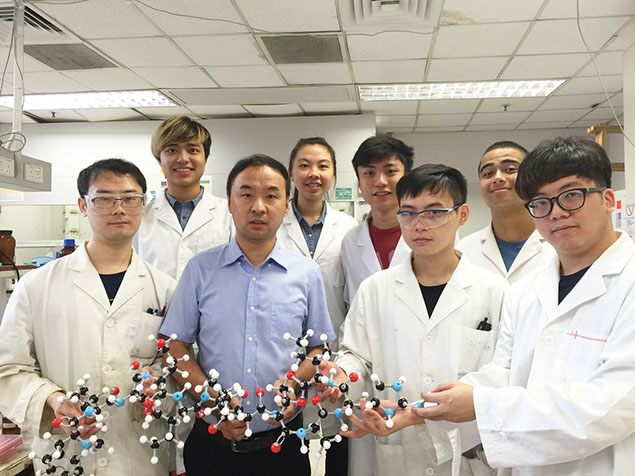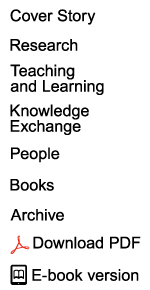
The introduction of penicillin in the 1940s started the era of antibiotics and marked a great advance in therapeutic medicine. Antibiotics are compounds produced by bacteria and fungi which are capable of killing, or inhibiting, competing microbial species. After its discovery by Alexander Fleming in 1929 and its development into a widely available medicine by the 1940s, penicillin as the first antibiotic was able to take on previously life-threatening infections such as streptococcus, meningococcus and the diphtheria bacillus.
Due to rapid evolution, once an antibiotic enters widespread human use, its effectiveness becomes limited and bacterial resistance to it is just a matter of time. This has led to further problems such as overuse of antibiotics. In the fight against bacterial resistance, new antibacterial drugs need to be developed all the time.
Generally there are two approaches for the development of antibacterial drugs. One, the discovery from nature of new types of antibiotics, such as streptomycin, cephalosporin, erythromycin, tetracycline, vancomycin, and daptomycin; and two, modifications on the structure of ineffective antibiotics to reactivate them, for example, nafcillin, oxacillin, ampicillin, amoxicillin, carbenicillin, ticarcillin and piperacillin, all of which are derivatives of penicillin and developed from its structural modifications.

![]() I feel so strongly that it is up to us in academia – in non-profit-driven institutions – to take responsibility in conducting antibacterial research. We chemists must play our part.
I feel so strongly that it is up to us in academia – in non-profit-driven institutions – to take responsibility in conducting antibacterial research. We chemists must play our part. ![]()
Dr Xuechen Li
Potential game-changer
Recently, scientists discovered just that in teixobactin, a compound which is being described as a potentially game-changing antibiotic. Dr Li and his research team, working in collaboration with scientists from the University of Central Florida and the Hong Kong Polytechnic University, have become the first to chemically synthesise teixobactin. Their studies on the synthesis were published recently in Nature Communications.
“Teixobactin was discovered just a year ago and is considered a breakthrough antibiotic. Its structure and antibacterial mechanism are different to those of existing antibiotics. It will be many years before it is actually turned into a drug, but we have taken the first step towards that by synthesising the compound.
“Teixobactin is so hot that many groups of chemists around the world are working on the molecule. Everyone wanted to be the first. We were the first to report a total synthesis, but we are still developing a better teixobactin derivative. Using this strategy we want to go one step further – make multiple analogs – up to 100 over the next two years. Then we will screen them for the best one – the one which will be sent to clinical trails to be a drug.
Asked how his team managed to be first, Dr Li said: “We used our own in-house strategy… and we worked harder!”
The implications for what Dr Li describes as “a very hot molecule” are potentially huge. “Teixobactin has displayed an interesting property in the laboratory – there is no resistance to it,” he explained. “Of course, we don’t know yet if that will translate to the drug when it is properly developed, but it’s a promising start.”
Dr Li has made the development of antibacterial compounds a focus for his laboratory because bacterial resistance has now become such a critical problem. “There is a public need. People are dying of bacterial infections resistant to all available drugs. The World Health Organization (WHO) has warned that the situation is now critical and new antibiotics need to be developed.”
He feels that the big pharmaceutical companies are not doing enough. “They are not doing Research and Development (R&D) in this area because of profit-driven considerations,” he said. “Unlike drugs for heart disease or diabetes, which have high profit margins, antibiotics are not a big money-maker. That’s why I feel so strongly that it is up to us in academia – in non-profit-driven institutions – to take responsibility in conducting antibacterial research. We chemists must play our part. I came to HKU in 2009, and in the seven years since, one of my main areas of focus has been antibacterial drug research, particularly applied research.”
In the case of teixobactin that means making derivatives and analysing them to improve the compound’s chemical properties, and seeking to modify the structure via chemical synthesis to make different analogs.
Teixobactin is the second antibacterial compound Dr Li’s team has worked on. In 2013 they began studies on daptomycin, and have since synthesised more than 100 analogs, from which they have identified a daptomycin-better version. “Now, teixobactin is our focus,” he said, “so we hope it will be the next generation of antibiotics. And, since pharmaceutical companies have already shown interest in doing R&D to take our daptomycin-better molecule further, we think they will be very interested in teixobactin. I want to further advance both molecules, and continue our focus on medicinal chemistry.”
Both nationally and internationally, there is huge interest in the teixobactin research. “To my knowledge, there are more than 30 national and international media reporting our teixobactin story,” he said. “It is indeed attracting a lot of attention.”
But while acknowledging this is an exciting area to work in, Dr Li also warned: “This kind of research requires a lot of work and it does not always render results. We are the first to publish paper on teixobactin synthesis, so that is a success but it is a risky field – you have to hope to find the best compound, but that doesn’t mean that you will find it. We have spent four years on daptomycin-based next-generation antibiotic research, and we will spend the next few years on the medicinal chemistry of teixobactin – and we have made good progress with each of them, but there is still a long way to go.”
Dr Xuechen Li working in the laboratory with his research team.
Next
Back
Fighting the Resistance
As more and more infections grow resistant to existing antibiotics, an HKU team led by
Dr Xuechen Li, Department of Chemistry, is at the forefront of developing the next generation of antibiotics.

Dr Xuechen Li (second from left in the first row) and his teixobactin project team at the Department of Chemistry, including three PhD students and four undergraduate students.


